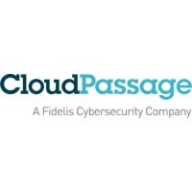

CloudPassage and Prisma Cloud by Palo Alto Networks compete in cloud security solutions. Users favor Prisma Cloud for its comprehensive feature set, even though CloudPassage is commended for cost-effectiveness and support.
Features: CloudPassage provides scalability, automated security checks, and compliance readiness, making it ideal for agile and rapid deployment scenarios. Prisma Cloud by Palo Alto Networks offers a wide range of integrated security features, including deep visibility, compliance, and risk assessment capabilities, providing extensive security coverage.
Ease of Deployment and Customer Service: CloudPassage is known for its easy setup and responsive customer service, aiding quick adoption and problem resolution. Prisma Cloud supports a robust deployment model with extensive integration, though it may require more initial configuration. Both products offer commendable customer service, but CloudPassage's deployment ease and support are especially noted.
Pricing and ROI: CloudPassage is recognized for lower setup costs and strong ROI, appealing to budget-conscious organizations. Prisma Cloud may be more expensive initially but justifies its cost through comprehensive security. It is considered the superior choice for those prioritizing advanced security measures despite higher costs.
| Product | Market Share (%) |
|---|---|
| Prisma Cloud by Palo Alto Networks | 9.6% |
| CloudPassage | 0.4% |
| Other | 90.0% |
| Company Size | Count |
|---|---|
| Small Business | 36 |
| Midsize Enterprise | 22 |
| Large Enterprise | 56 |
CloudPassage Halo is an agile security and compliance platform that works in any cloud infrastructure: public, private or hybrid. The platform is unique because it provides continuous visibility and enforcement delivered as a service, so it’s on-demand, fast to deploy, fully automated and works at any scale.
The CloudPassage platform delivers a comprehensive set of security and compliance features, so you don’t have pay for and manage point solutions that often don’t integrate well with each other. Hundreds of companies use CloudPassage as a strategy to take full advantage of the business benefits of their cloud investments, with the confidence that critical business assets are protected. Using CloudPassage, security organizations achieve 6 critical control objectives with a platform that is flexible, fast and scalable:
Visibility: Immediate, consistent, continuous knowledge of what assets exist, where they reside, and what they’re doing.
Strong Access Control: Strong, layered controls enabling authorized access & denial of resources to unauthorized entities.
Vulnerability Management: Continuous detection & elimination of issues that create exploitable points of weakness.
Data Protection: Assurance that critical data is encrypted & used appropriately by authorized entities while in motion or at rest.
Compromise Management: Capabilities that enable detection & response to malicious or accidental compromise of resources.
Operational Automation: Day-to-day management of technologies & processes that ensure security & compliance.
Prisma Cloud by Palo Alto Networks provides comprehensive cloud-native security solutions. It covers dynamic workload identity, automated forensics, and multi-cloud protection, ensuring robust security across diverse cloud platforms.
Prisma Cloud delivers advanced capabilities for managing cloud security across AWS, Azure, and GCP platforms. It offers dynamic workload identity creation, real-time monitoring, and seamless integration into CI/CD pipelines. With automation, centralized dashboards, and enhanced visibility, users effectively manage security misconfigurations and vulnerabilities. While optimizing cloud environments through runtime protection and compliance, Prisma Cloud faces challenges with its navigation, pricing, and limited automation capabilities. Users seek improvements in API security, role-based access controls, and documentation quality, emphasizing the need for enhanced customization and reporting features.
What are the important features of Prisma Cloud?
What benefits or ROI should users consider in reviews?
Industries like finance and telecom rely on Prisma Cloud for managing cloud security posture and container security. Teams utilize its capabilities across hybrid and multi-cloud settings to ensure compliance and robust threat protection. Features like misconfiguration detection and runtime monitoring are critical in promoting security objectives in these sectors.
We monitor all Cloud Security Posture Management (CSPM) reviews to prevent fraudulent reviews and keep review quality high. We do not post reviews by company employees or direct competitors. We validate each review for authenticity via cross-reference with LinkedIn, and personal follow-up with the reviewer when necessary.